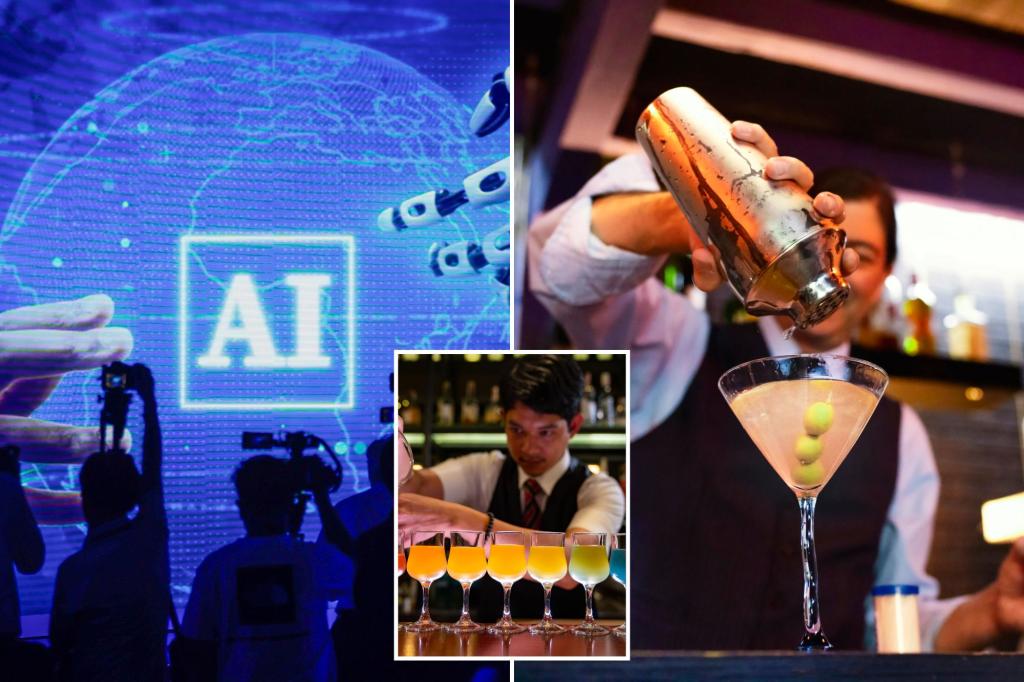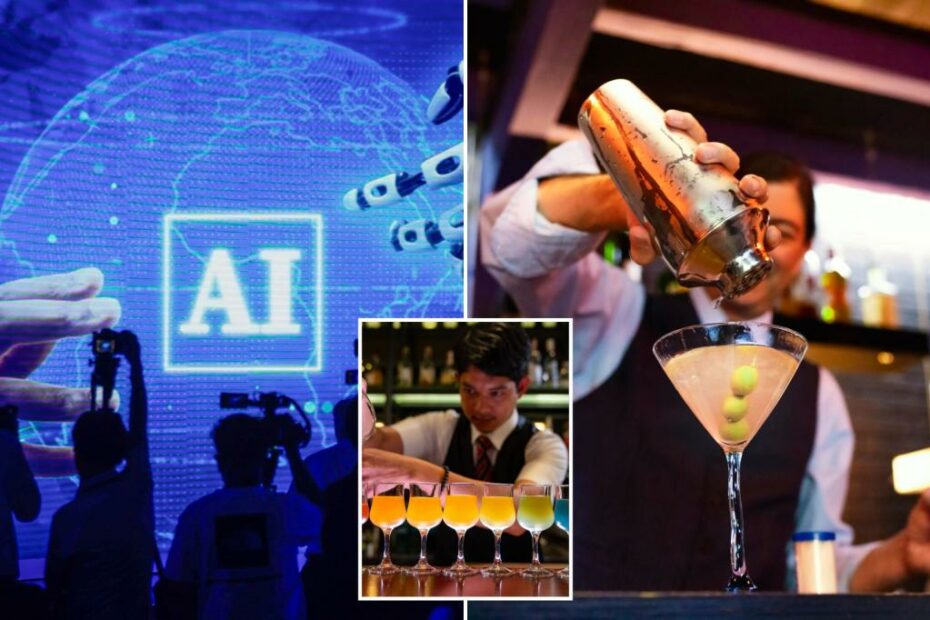AI bartenders that recognize regulars could be the future of dining: expert
AI’s Role in the Future of Food and Hospitality
Artificial intelligence (AI) has the potential to revolutionize the food and hospitality industries by streamlining processes and improving customer experiences, according to Glenn Tait, the product director of UK-based hospitality tech firm Zonal. In a recent article provided to Fox News Digital, Tait outlined six ways AI will shape the industry as the technology continues to grow.
Firstly, AI can automate restaurant bookings and responses, making it easier for customers to make reservations and get quick answers to their inquiries. This automation frees up staff time and improves efficiency.
Secondly, AI can aid in stock management by analyzing sales data and predicting consumer demand. This helps restaurants and bars avoid over-ordering and reduce waste.
Thirdly, AI enables forward planning and helps businesses stay ahead of their competition. By analyzing customer behavior and market trends, AI can provide valuable insights for decision-making and strategizing.
Another significant application of AI is hyper-personalizing the customer experience. With the ability to analyze past orders, browsing history, and customer service interactions, AI can identify patterns and suggest products or services that suit individual customer needs and interests.
Predictive maintenance is another area where AI can make a difference. By analyzing data from connected devices, AI can detect potential equipment failures and trigger proactive maintenance, minimizing downtime and costs.
Lastly, facial recognition technology coupled with AI could allow bartenders to take customers’ orders and recognize regulars. This technology has the potential to offer personalized experiences, such as remembering a customer’s favorite drink or seat preference.
Despite these advancements, Tait stresses that AI is not meant to replace human interaction in hospitality but rather enhance it. He emphasizes the importance of the human touch in delivering exceptional customer service. By automating certain tasks, AI allows staff to focus on creating better experiences for customers.
FAQs:
Q: Will AI replace human employees in the food and hospitality industry?
A: No, AI is not intended to replace human employees. Its purpose is to streamline processes, save time, and enhance the customer experience while allowing staff to focus on providing exceptional service.
Q: How can AI personalize the customer experience?
A: AI can analyze past orders, browsing history, and customer interactions to identify patterns and suggest products or services that meet individual customer needs and interests.
Q: Can AI help reduce food waste?
A: Yes, AI can assist in managing stock and predicting consumer demand, which helps restaurants and bars avoid over-ordering and reduce food waste. AI-powered cameras can also provide real-time feedback to kitchen staff, improving efficiency and portion control.
Q: Has AI been implemented in the food industry already?
A: Yes, AI has been adopted in various sectors of the food industry. Fast-food restaurants like Wendy’s, Hardee’s, and Carl’s Jr. have introduced AI technology in their drive-thru systems, while McDonald’s has implemented AI-powered drive-thru windows.
Q: What are the potential benefits of incorporating AI in the food and hospitality industry?
A: Some benefits include improved efficiency, better customer experiences, reduced food waste, and cost savings for businesses. AI has the potential to revolutionize how these industries operate and interact with customers.

Expert: AI Bartenders Recognizing Regulars Could Shape the Future of Dining
Artificial intelligence (AI) is gradually making its way into the food and hospitality industry, with the potential to take customers’ orders and even recognize regulars. According to Glenn Tait, the product director of UK-based hospitality tech firm Zonal, AI can streamline work processes and enhance customer experiences. Tait highlighted six ways that AI will shape the industry, including automating bookings, improving stock management, planning ahead, personalizing experiences, enabling predictive maintenance, and implementing facial recognition technology.
Tait envisions a future where AI technology takes customers’ orders at bars, using machine learning and facial recognition to remember their favorite drinks and recognize regular patrons. Additionally, this technology could be utilized to enhance customer service by identifying if someone seems unhappy or has been waiting for a long time, prompting staff to assist them. Tait stressed that AI should be viewed as a tool that supports humans in delivering exceptional customer service, rather than replacing them.
Personalization is a key element that customers desire, and Tait explained that AI can analyze past orders and interactions to suggest products or services that meet individual needs. This can help create a comprehensive profile of each customer and enhance their experience. AI also has the potential to automate reservations and answer customer service queries, reducing workloads and improving efficiency for restaurant employees.
In addition to improving customer experiences, AI can assist with managing stock and reducing food waste. By analyzing sales patterns and responding to consumer demand, AI can help restaurants avoid over-ordering and wasting food. Tait discussed how AI-powered cameras can provide real-time feedback to kitchen staff, monitoring portion sizes and improving efficiency.
AI integration is not new in the food industry, as various fast-food chains have already implemented AI-driven technologies. For instance, Wendy’s plans to use AI to revolutionize the drive-thru experience, while Hardee’s and Carl’s Jr. have their own AI drive-thru system named “Tori,” and McDonald’s has utilized AI-powered drive-thru windows since 2021.
As AI continues to advance and become more user-friendly, its integration into the food and hospitality sector holds great potential for streamlining operations, enhancing customer experiences, and reducing waste.
